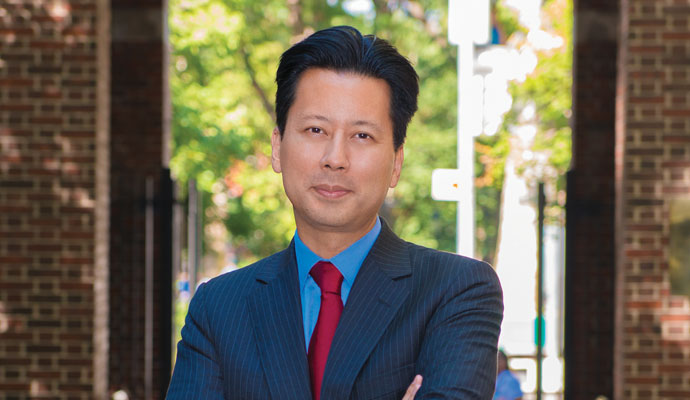Do You Have a Calling? For Gay Employees, the Answer Is Complicated
Working in a supportive environment boosts LGB employees’ belief that they are living up to their professional aspirations.
Bottom Line: Working in a supportive environment boosts LGB employees’ belief that they are living up to their professional aspirations.
Some people view their work as just a job. They punch a timecard, they do their shift, they get their paycheck. End of story. But for many others, work is something more. It’s a calling. These are people who believe their job should be linked to their overall purpose in life and who often see their career as a way to explicitly help others.
Multiple studies have shown that people who seek to live out their calling — whether they actually succeed at it or not — benefit in a number of tangible ways, many of which in turn benefit company performance. Specifically, they tend to experience higher levels of job satisfaction, develop a greater commitment to their career, and feel more content at home.
A couple of recent studies have found that a sense of calling comes more naturally to people with certain advantages — namely, those who have a job, earn more money, and have higher levels of formal education. But scant attention has been paid to how the notion of a calling, and the hope that it can be attained, plays out among people who have faced disenfranchisement on the job and whose concept of work-related fulfillment may be shaped, in part, by experiencing either overt discrimination or subtle barriers to career advancement. One such demographic group is employees who identify as lesbian, gay, or bisexual (LGB), a historically marginalized minority with few mainstream influential champions until very recently.
A new study aims to fill this gap by investigating how the aspiration to live a calling affects the careers and personal lives of working people in North America who identify as LGB. The researchers also specifically examined how a supportive workplace culture impacts the ability to live a calling, reasoning that it would prove more salient to their study than a focus on outright workplace discrimination.
The authors recruited participants from LGB-themed mailing lists, message boards, social networking platforms, discussion groups, and university forums. They elected not to include transgender employees because past researchers have shown that that group faces unique challenges in the workplace that may not necessarily apply to the LGB set. The final sample consisted of 171 adults between 18 and 76, with an average age of 40.
The participants completed a series of questionnaires that measured the extent to which they thought they were living a calling, the level of meaning they attached to their life, and how satisfied they felt, personally and professionally. They also answered a 20-question survey developed in 2004 that captured LGB employees’ perceptions of their workplace climate and coworkers’ supportiveness.
The authors’ analysis revealed that LGB employees who reported having a positive workplace climate experienced higher levels of job satisfaction and were more likely to believe that they were living out their calling. As this study shows, merely being in a professional climate that espouses and values equality tends to make LGB employees feel they are living their calling.
LGB employees who reported having a positive workplace climate experienced higher levels of job satisfaction.
Although a supportive workplace culture did not directly correlate with overall life satisfaction, the authors posit that it probably had an indirect effect. In fact, many studies have shown that as people increase their ability to live out their calling, the positive effects of enhanced job fulfillment and life meaning spill over into off-the-job satisfaction.
The findings also highlight the importance of the relational strategy for career counseling, which has been touted as particularly relevant to the LGB population. Under this approach, counselors ask their clients to focus on how improving their interpersonal relationships with colleagues, supervisors, and other social contacts can impact their career development and trajectory.
There’s plenty of room for extending the findings in this study. LGB employees who belong to a second minority group presumably grapple with different factors that inform their job-related fulfillment, the authors note. For example, they may find that a workplace culture that is supportive of employees with different ethnicities or racial backgrounds is more or less important than the climate surrounding LGB identity. Accordingly, the authors encourage researchers to consider the unique outlook of workers with multiple minority backgrounds and explore the factors that are most important to their sense of calling.
Source: “Living a Calling, Life Satisfaction, and Workplace Climate among a Lesbian, Gay, and Bisexual Population,” by Blake A. Allan (Purdue University), Elliot A. Tebbe (University of Nebraska–Lincoln), Ryan D. Duffy (University of Florida), and Kelsey L. Autin (University of Florida), Career Development Quarterly, Dec. 2015, vol. 63, no. 4






